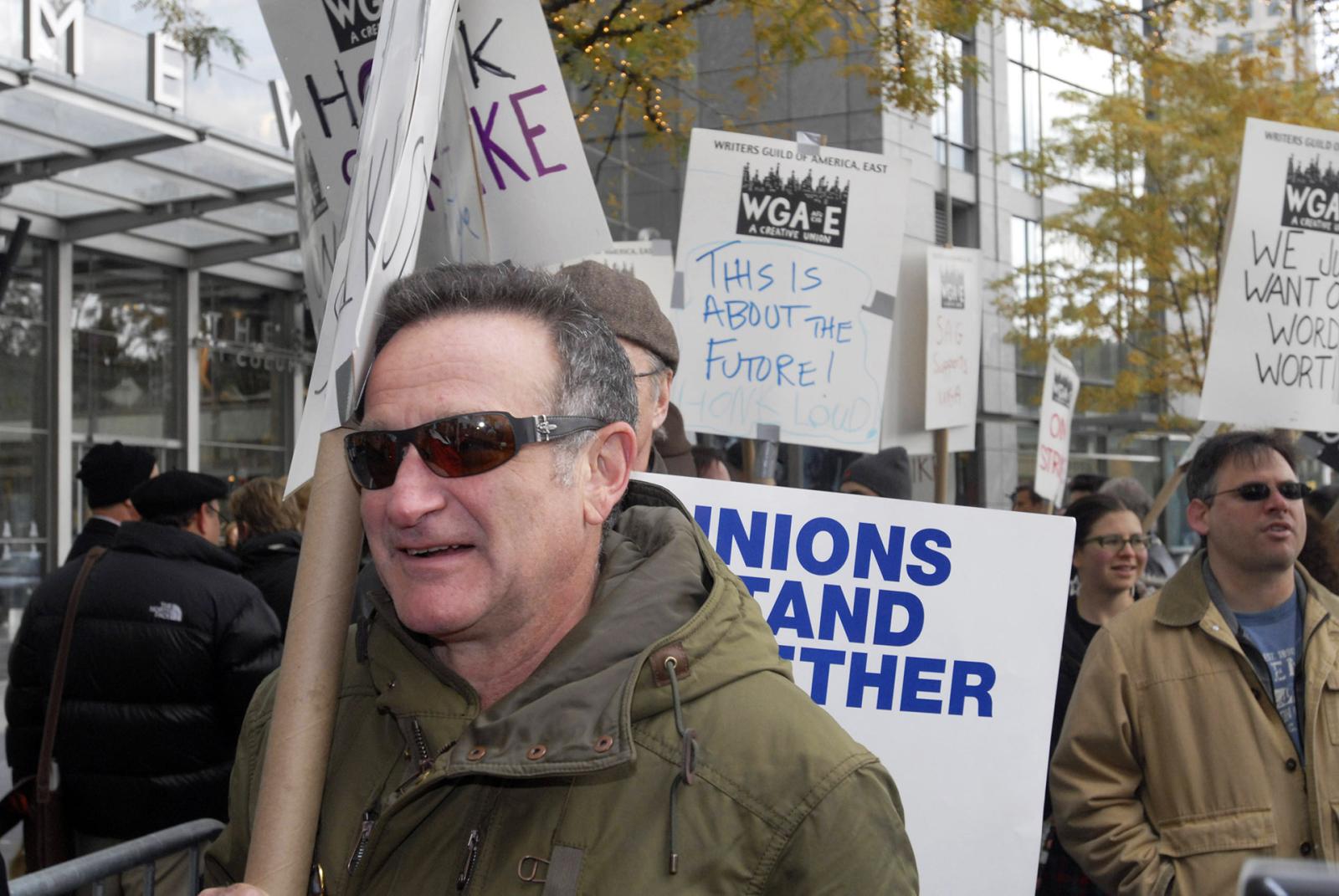A Guide to 2023 WGA Strike: How Long It Might Last & Who is Affected

The threatened WGA (Writer's Guild of America) strike could go ahead as early as midnight PT when the existing contract with the Association of Motion Pictures and Television Producers (AMPTP) comes to an end.
But what's it all about, how long will it last and what does it mean for viewers?
Why are writers striking?
The WGA says the 'survival of writing as a profession is at stake…driven in large part by the shift to streaming.' It claims this new direction for production companies has seen them 'cut writer pay and separate writing from production'.
For their part, the AMPTP say streaming is still an emerging business and that networks and studios are not yet in a position to accurately predict its growth, how profits will be determined or what the margins will be. AMPTP president Carol Lombardini is, therefore, charged with protecting the future of the industry, they say - ensuring the long-term success of production companies and high-quality content.
The WGA, and other writer's unions, argue that there is sufficient money available to networks and streaming services to pay adequate compensation to writers. And they cite the recent announcement from Netflix CEO Ted Sarandos that he expects Q1 free cash flow for 2024 to be over $2 billion, compared with $800 million this year.
Writers are also concerned about the rise of AI and whether networks will be able to use it to write scripts. They want legislation to protect writers from having their ideas exploited by AI bots. And they want to see an end to mini-rooms, which they say contribute to reduced compensation for their members.
Why now?
It's a good question. Post-pandemic, things are hard enough. The logjam caused by production being paused because of lockdowns is still not cleared, and the potential for even more delays doesn't suit either side.
But with contracts between several writers' unions and production companies expiring in the coming months, while the timing might be unfortunate, this is not an issue that can be put on the backburner. Agreement needs to be reached to avoid a breakdown in the production process.
How long will it last?
It's impossible to say exactly how long the strike might last – but it looks like one that could become a war of attrition.
This strike action certainly has greater support than was garnered back in 2007 when strikes went on for 100 days. Back then, 90% of those who voted were in favour of striking. This time around the level of support is almost 98%.
And two powerful unions (who have publicly backed the WGA) are yet to begin negotiations. The Director's Guild of America (DAG) and Screen Actors Guild (SAG-AFTRA) both have contracts due to expire on June 30. The DAG will begin negotiations with the AMPTP on May 10, with SAG-AFTRA set to take their seat at the table on June 7.
If those representing the writers are correct and the networks and streaming services do indeed have plenty of wealth to share, the weight of opposition might appear to lean in the direction of the writers winning. Although WGA and IATSE (International Alliance of Theatrical Stage Employees) are estimated to have lost out on a combined $342.8 million in salaries during strike action across 2007-2008.

Whether there is a sufficient fight in strikers in these more frugal times is yet to be seen.
Which shows will be affected?
This is largely determined by how long the strikes last. The first to be affected last time were late night shows. Nightly schedules and topical content make these kinds of shows heavily dependent on writers.
The next to go would most likely be soap operas. Again, the nature of their recording schedules is such that a constant stream of scripts is required.
But spring sees the beginning of the production process for shows that will hit our screens in autumn. So, a writer's strike now could have a long-term effect on post-summer shows – a time when networks traditionally battle it out for viewing figures.
What we might see, in the event of protracted strike action, is a move towards non-scripted shows such as reality TV. This was a result of previous strikes – although there was more of an appetite for reality shows back then. The format had only recently taken off in a huge way at the time, and whether a new raft of hastily thrown-together programmes will impress viewers is very much in doubt.
There's also a risk to movies. Hollywood is yet to recover from the pandemic and strike action will exacerbate this situation – particularly if it goes on for months.
What's the most likely outcome?
As with all strikes, the most likely outcome falls somewhere between the two extremes. In 2007, the WGA negotiated that shows over certain budgets would have to hire WGA writers, and an increased percentage payment for writers from the distributor's gross for digital distribution.
With the writers seemingly having a strong hand due to the amount of support behind them, and networks facing greater competition for viewing figures right now, some sort of agreement around increased compensation and residuals seems the most likely solution. The question is, how long will it take and how much are the AMPTP willing to compromise?
Source: Deadline.